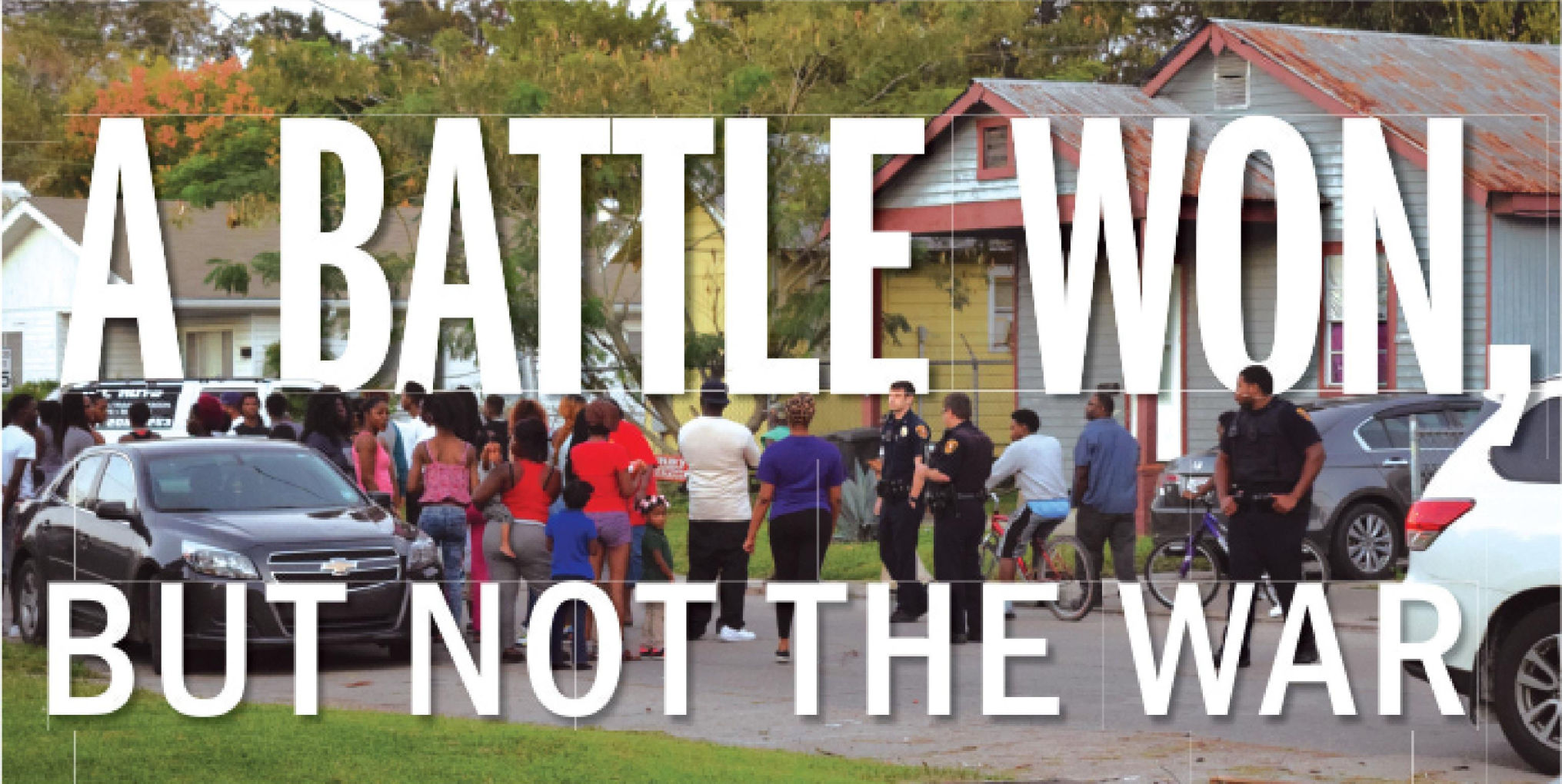
A BATTLE WON, BUT NOT THE WAR
July 28, 2018
Arlene DeHart
July 28, 2018When shots rang out on Houma’s Morgan Street nearly three years ago a cry went out from community leaders and elected officials in particular.
Coupled with violence that had erupted in other neighborhoods, a need was seen for more aggressive mentoring of youth. The problem readied ears beyond the immediate vicinity. The U.S. Attorney for the Eastern District of New Orleans visited a middle school in Gray to address the need for rejecting violence. Newspapers focused on existing programs that sought to do good-and help by reaching out to youngsters.
As indicated in a column that appears in this issue, there are a number of people who work every day to keep youngsters on a good path and spare them from the dangers of the street and its attendant culture that glorifies violence through promises of fast money, enhanced by music and movies. Councilman John Navy, Superintendent of Schools Philip Martin, and Judge Juan Pickett are among those who names stand out when it comes to seeking solutions.
But there are not nearly enough angels out there to effectively offset the devil’s lures.
A focus on reforming re creation services in Terrebonne Parish can have a positive effect on some young lives. There is no doubt that for many youngsters, availability of gyms and fields can have a positive effect
But basketball and baseball are not the forte of all young people The sad indications are that those most drawn to street life don’t fit the mold of the athletes or pseudo-athletes. Youngsters who attend churches regularly with their parents or other relatives ore easily subject to the positives offered by youth ministers and church-based mentors.
It is the ones who don’t have such anchors that are hardest to reach, but who need the outreach more than anyone. It is the ones who are most susceptible to street culture because they are already in the streets and have rejected the anchors that are an aid to some that need the help most.
They are – by definition and circumstance — difficult to reach. Some communities, many far from Houma. have programs geared toward reaching the seemingly unreachable.
Back when Corey Butler was murdered there was talk inspired by articles in this newspaper of the need for a blue-ribbon panel to examine youth violence and to find ways of addressing it.
Although, as previously mentioned, there is good work being done by people who want to reach kids, the critical work of reaching the hardest to reach has not been broached.
Coupled with the problems of violence and gangster allure reinforced by pop culture, s byproduct that is all too common involves the reticence of witnesses to crime to tell authorities what they see or know.
The code of silence, according to some people who spend time talking to kids will he nearly impossible to break. We don’t share their pessimism, however.
We believe that with properly place programs and a commitment to change, a desire to keep their neighborhoods safe may at some point result in greater successes for law enforcement at crucial moments.
The most successful work being done right now is that performed by individuals working one-on-one
Absent however is official commitment at the parish level to seeking grants or inviting programs that have proven track records. The U.S. Department of Justice has resources. Various non-profit a on a national level have resources. But we see no evidence of them being sought
In many cases, sadly, it takes men with street credibility — earned through evil acts but possible through a desire of offenders, once rehabilitated, to do good — to reach children already drawn to the street. The credibility that will make them listen is something that ministers and politicians simply do not possess and cannot possess because of their stature.
Such programs are among those which can be modeled after, but it will take a visible commitment at the pariah government level to get the wheels railing
We reiterate out call for a commission made up of elected officials, church leaders and educators as well as others with the interests of youth foremost in their minds, to seek answers and propose solutions
An opportunity for official intervention was missed when tragedy struck in 2015. Hopefully it won’t be missed again.








